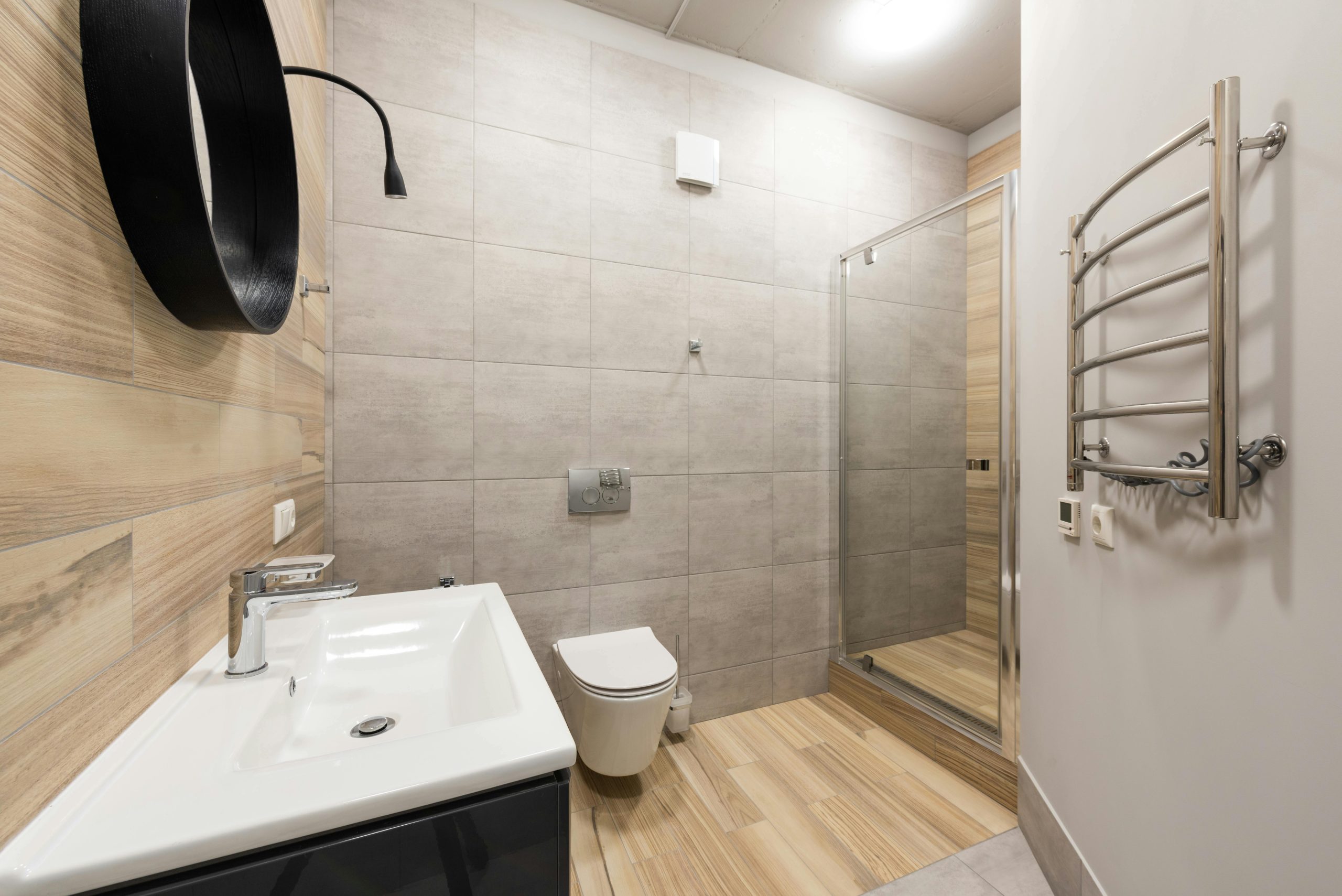
Fixture Demands and Usage Patterns
Residential plumbing fixtures are designed for intermittent use. A kitchen faucet, toilet, or water heater in a home may be used a few dozen times a day at most. In commercial spaces, however, plumbing fixtures are in near-constant use—often by people who don’t treat them with care.
As a result, commercial-grade fixtures must be more durable and efficient. Think of hands-free toilets, wall-mounted sinks, heavy-duty garbage disposals, and high-capacity water heaters or boilers. These components are engineered to handle higher volumes of traffic and longer hours of use, and they often cost more upfront.
Maintenance expectations also differ: residential plumbing systems can typically go longer between inspections, while commercial systems often require more frequent servicing to prevent disruptions or code violations.
Code Requirements and Compliance
Plumbing codes exist in both residential and commercial settings, but commercial buildings must meet stricter and more comprehensive regulations—often involving ADA (Americans with Disabilities Act) compliance, fire suppression systems, occupancy requirements, and backflow prevention protocols.
Code compliance in commercial projects is heavily enforced through permitting and inspections. Businesses must pass routine inspections not only when a property is built or remodeled but also on an ongoing basis. A failed inspection could mean fines, insurance issues, or even temporary closure.
For homeowners, code compliance is still important—especially during remodels or property sales—but there’s generally more flexibility. Still, any substantial plumbing work in either setting should be performed by a licensed professional who understands the relevant local codes.
Equipment and Material Differences
Residential plumbing systems typically use copper, PEX, or PVC piping, depending on the home’s age and updates. Water heaters are often tank-style units serving a single household.
In commercial settings, you’ll find a broader range of materials and larger equipment. For example:
- Piping may be cast iron, stainless steel, or larger-diameter copper to handle higher flow rates.
- Boilers or tankless rack systems are often used in place of traditional water heaters.
- Drainage systems must be designed to handle higher volumes and often require grease traps, backflow devices, and more complex venting arrangements.
Maintenance access is also more important in commercial buildings, where mechanical rooms, pump systems, and control panels must be easily accessible for routine inspections and emergency repairs.
Costs and Downtime Considerations
Because commercial plumbing involves larger systems, more durable materials, and stricter code adherence, installation and repair costs are often higher. Labor costs can also increase due to the need for specialized tools, permits, or after-hours service (common for businesses that can’t shut down during business hours).
In a residential setting, plumbing issues can usually be scheduled and repaired with minimal disruption. In commercial environments, plumbing problems can lead to lost revenue, liability issues, or code citations—especially in industries like food service or healthcare where sanitation is tightly regulated.
That’s why many businesses invest in plumbing service agreements to catch problems early and reduce the risk of costly downtime.
Choosing the Right Plumbing Partner Matters
Because of these differences, not every plumber is equipped to handle both residential and commercial systems. Commercial projects require a deep understanding of engineering plans, zoning regulations, equipment sourcing, and compliance documentation—not to mention the ability to work efficiently around ongoing operations.
Work With a Plumbing Company That Does Both—Expertly
At Premier Plumbing, Inc., we specialize in both residential and commercial plumbing across Southeast Michigan. Whether you’re a homeowner remodeling your bathroom or a business owner upgrading your commercial facility, we bring the tools, experience, and code knowledge needed to get the job done right.
We understand the different demands of home and business plumbing—and we tailor our approach to meet your specific needs. Contact Premier Plumbing today to schedule a service or consultation and work with a team that delivers quality, compliance, and peace of mind at every level.

